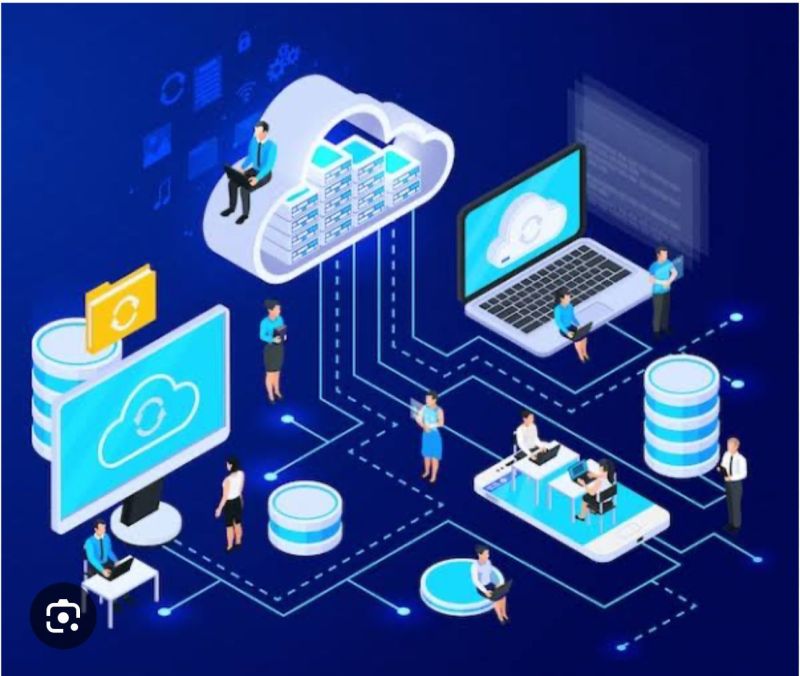
What is Cloud Computing?
Cloud Computing is the on-demand delivery of computing services such as servers, storage, databases, networking, software, and analytics over the internet. Instead of owning and maintaining physical hardware or data centers, businesses and individuals can rent computing resources from cloud providers like AWS, Microsoft Azure, and Google Cloud.
Key Features of Cloud Computing
1. On-Demand Access – Resources are available whenever needed.
2. Scalability – Can easily scale up or down based on demand.
3. Cost-Efficiency – No need for expensive hardware; pay only for what you use.
4. Accessibility – Access data and applications from anywhere with an internet connection.
5. Security & Reliability – Cloud providers offer data encryption, backups, and disaster recovery.
Types of Cloud Computing Services
1. Infrastructure as a Service (IaaS) – Provides virtual machines, storage, and networks (e.g., AWS EC2, Google Compute Engine).
2. Platform as a Service (PaaS) – Offers development platforms with tools for building applications (e.g., Google App Engine, Microsoft Azure App Services).
3. Software as a Service (SaaS) – Delivers software applications over the internet (e.g., Gmail, Dropbox, Microsoft 365).
Types of Cloud Deployment Models
1. Public Cloud – Services are provided by third-party providers and shared among multiple users (e.g., AWS, Google Cloud).
2. Private Cloud – A dedicated cloud environment for a single organization (e.g., banks, government institutions).
3. Hybrid Cloud – A combination of public and private clouds for flexibility and security.
4. Multi-Cloud – Using multiple cloud providers for better performance and reliability.
Applications of Cloud Computing
• Web Hosting & Websites (e.g., WordPress, e-commerce platforms)
• Data Storage & Backup (e.g., Google Drive, Dropbox)
• AI & Machine Learning (e.g., AWS SageMaker, Google AI)
• Big Data & Analytics (e.g., Hadoop on Cloud, Google BigQuery)
• IoT & Smart Devices (e.g., AWS IoT, Azure IoT Hub)
• Cybersecurity & Threat Detection